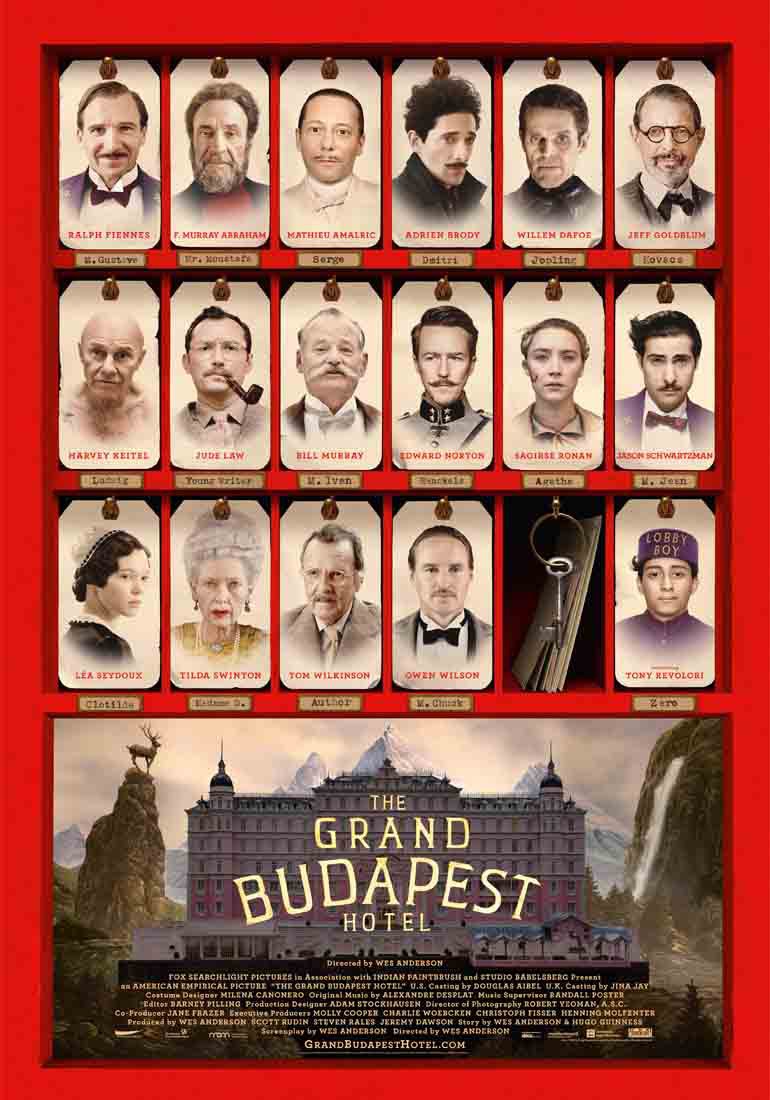Check in at 'The Grand Budapest Hotel'
Originally published on TheMiamiStudent.net
I must admit that I had absolutely no idea what to expect when I sat down to watch “The Grand Budapest Hotel.” About 100 minutes later, I left the theater dancing a jig to the incredibly upbeat music in the credits and wondering where in the world Wes Anderson ever came up with the idea for the delightful madness that is his latest movie.
What was “The Grand Budapest Hotel” about, you ask? Well, it was a little bit of everything. There was murder, theft, love, deception, friendship and loyalty. There was a story within a story, a chase scene that took place on abandoned Winter Olympics slopes, a secret society and a jailbreak that reminded me very much of “The Shawshank Redemption.” It was a fun, fast paced ride centered on an exquisite hotel up in the mountains of Europe called The Grand Budapest.
The first thing that struck me about the film was the beauty of it all. The cinematography was stunning, made better only by the overly saturated colors in every shot. At the beginning of the movie I actually found myself a little distracted from the plotline because of the camera work and how well it was executed. Then there’s the musical score, which is tremendous and matches the mood in every scene to a tee. The other great beauty of the movie is the set itself; every detail about the production design and costuming is impeccable. But the real stunning part was the exterior shots of the Grand Budapest, which is actually a miniature model hotel built specifically for the film.
The movie tells the tale of how Mr. Zero Moustafa, played by both F. Murray Abraham and Tony Revolori, came to own The Grand Budapest. He began as a lobby boy, learning the ropes from the illustrious and mischievous head concierge M. Gustave (Ralph Fiennes), who calls people ‘darling’ just about as much as Gatsby calls people ‘old sport.’ Their adventures together not only include the general running of the hotel, but also art theft and a murder charge. The whole thing is quirky, odd and very enjoyable.
As far as casting goes, Anderson’s picked the best. The ensemble for “The Grand Budapest Hotel” includes everyone from Ralph Fiennes and Bill Murray to Jude Law and Willem Dafoe. And just when you think new faces are done popping up, Ed Norton and Owen Wilson make appearances as well. There wasn’t a weak member of the whole cast, though it was Fiennes who gave by far the best performance as the eccentric and sarcastically comical M. Gustave.
While many of us know Fiennes best as Lord Voldemort in the Harry Potter movies, his acting is arguably better as Gustave, a role in which he is free to create and mold the character as he goes. “You see, there are still faint glimmers of civilization left in the slaughterhouse that was once known as humanity,” says Gustave, following that profound statement with a declarative swear word. He’s a bizarre yet charming man, and Fiennes seems to understand his character on a much deeper level than most other actors do.
What I enjoyed about this movie in particular was that it wasn’t heavily burdened with themes or underlying messages. Yes, there is something to be said about a statement made in the beginning about how writers don’t actually have to come up with anything on their own because other people bring the characters and events to them. But that interesting statement is almost completely forgotten by the end of the movie.
If you’re looking for an impactful, thematic message, you should probably see another movie. In the end, “The Grand Budapest Hotel” is just a story about a lobby boy and a concierge and the adventures they have together. But that’s not a bad thing; it’s actually what makes the movie so refreshing. It’s a self-contained, light-hearted and enjoyable story in a never-ending world of trilogies and series.
